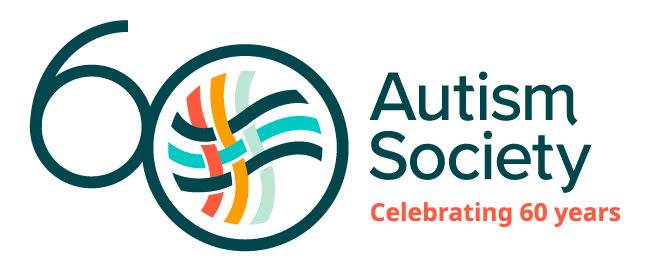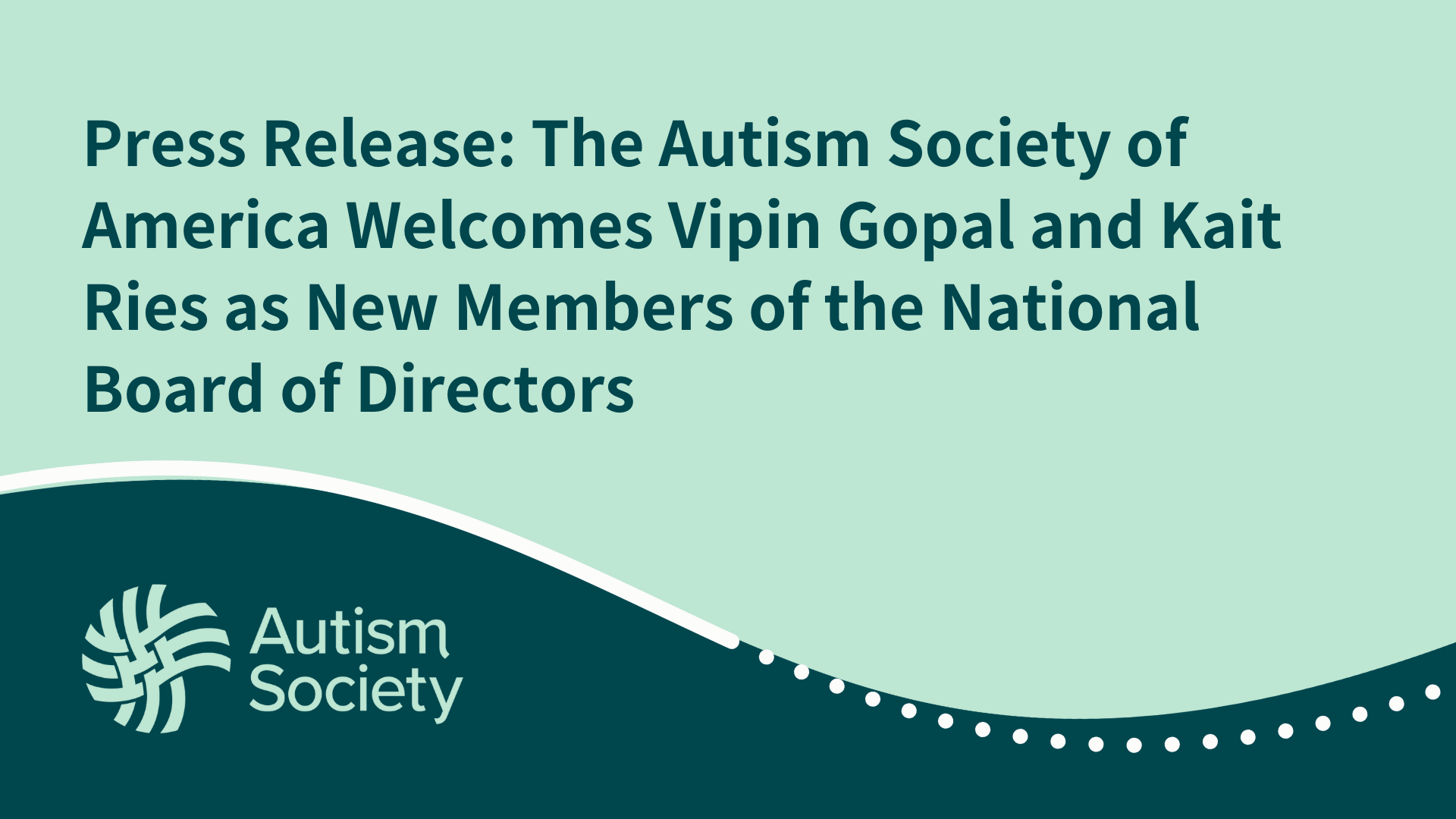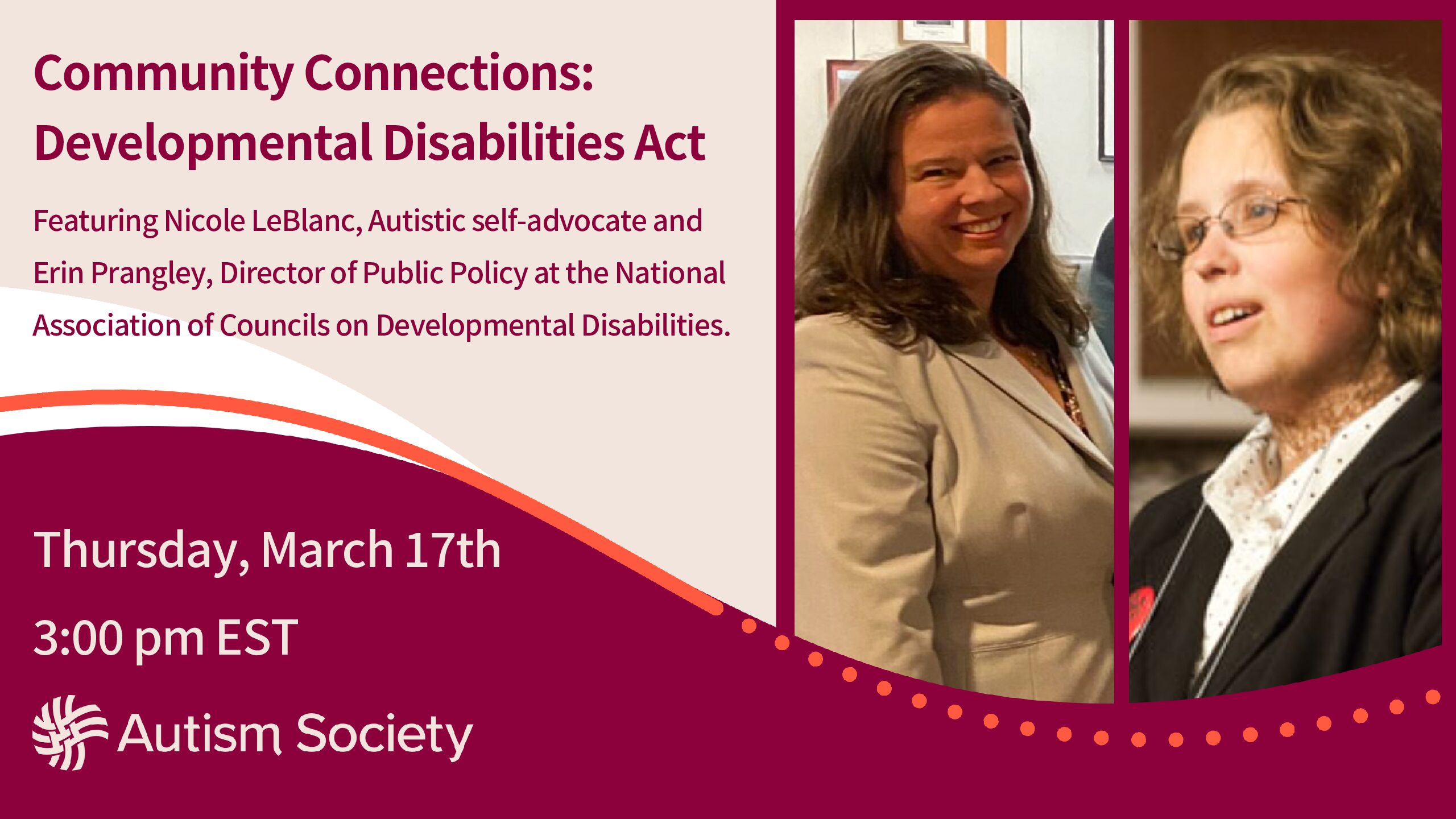
In this issue of Capitol Connection, see how the Autism Society delivered over 400 grassroots petitions urging a House Committee to take up and pass the Transformation to Competitive Integrated Employment Act. Also, find progress on funding federal programs, state technical assistance on the direct workforce shortage, new voting rights legislation, a student toolkit on voting, and more. Use the Autism Society’s Action Center to educate your Members of Congress on legislative issues important to you and your family. To easily keep up to date on your opportunities to take action, text AUTISM to 50457 to receive our alerts.
Disability Policy Seminar
Don’t forget to register for the upcoming Disability Policy Seminar April 8th-10th! Your presence will help us establish allies on Capitol Hill and press for progress on critical disability rights issues that make life in the community possible for people with Autism/IDD. See the draft schedule. Online registration ends Friday, March 29th. You can register onsite from April 7th – 9th.
Congressional Updates
Transformation to Competitive Integrated Employment Act
Brittany Fitzgerald and Nicole Miller traveled from Tidewater, Virginia to help the Autism Society deliver over 400 petitions received from its grassroots members to Rep. Bobby Scott (D-VA). The petitions urge the House Committee on Education and the Workforce to take up and pass the Transformation to Competitive Integrated Employment Act (HR 1263). Scott is the ranking minority member on the Committee. The petitions were also delivered to Chairwoman Virginia Foxx (R-NC), although she was not available in person.
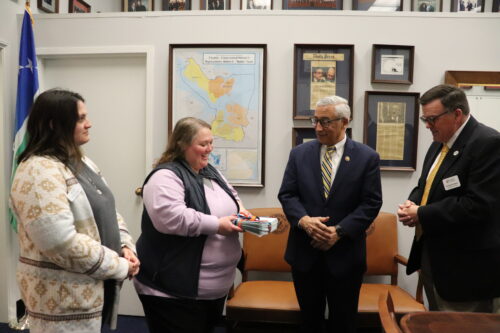
Brittany Fitzgerald and Nicole Miller delivered over 400 petitions to Rep. Bobby Scott with CEO, President Christopher Banks.
Employment Hearing
On the same day, the Senate Special Aging Committee, chaired by Senator Boby Casey (D-PA), held a hearing entitled, “All Means All: Empowering People with Disabilities to Thrive in Careers and the Workforce”. The hearing featured two individuals with Autism who successfully transitioned into competitive integrated employment, a researcher from Virginia Commonwealth University who provided research and data showing that with the right supports, people with intellectual and developmental disabilities can achieve their employment goals. The witness testimony and full hearing can be heard on the Committee website. The Autism Society provided written testimony for the record.
Appropriations
Congress passed another set of continuing resolutions to prevent a partial government shutdown. The new deadlines are March 8th and March 22nd. Over the weekend, Congress released 6 appropriations bills for consideration by the House. The package includes the Agriculture, Commerce-Justice-Science, Energy-Water, Interior-Environment, Military Construction-VA, and Transportation-HUD funding bills.
Despite tight funding caps, the HUD funding bill provides enough funding for the Housing Choice Voucher program to avoid cuts to the number of households currently receiving rental assistance. There are small cuts to project-based rental assistance for older adults and people with disabilities. The Agriculture bill fully funds the Women, Infants, and Children (WIC), a big win for low-income families.
Negotiators continue working on details on a second batch of spending bills due March 22nd. That group of bills would include the Defense, Financial Services, Legislative Branch, Homeland Security, Labor-HHS-Education, and State-Foreign Operations measures. The Autism Society is watching these negotiations closely.
On March 7th, President Biden is scheduled to give his State of the Union address when he will lay out the Administration’s agenda for the year. On March 11th, the President will release the Administration’s Fiscal Year 2025 budget request. Meanwhile, House Budget Chair Jody Arrington announced on Tuesday that he is working on an FY25 Budget Resolution, even though the FY24 appropriations bills are not completed.
Fiscal Commission
The Coalition on Human Needs sent a letter with over 140 organizations, calling on Congress to oppose any version of a so-called “fiscal commission”. While the goal of reducing the national debt is laudable, disability and low-income advocacy groups are concerned about back-door attempts to make significant cuts to Social Security, Medicaid, and discretionary programs that support people with disabilities. This concept also undermines the democratic process by fast-tracking legislation without the ability of the public, through its representatives, to fully debate and amend recommendations.
Accessible Voting Act
On February 15th, Representative Scanlon (D-PA) introduced H.R. 7389, the Accessible Voting Act. Senator Casey (D-PA) introduced the companion bill in the Senate. This bill increases voting accessibility for individuals with disabilities by establishing an Office of Accessibility within the Election Assistance Commission. The commission sets voting guidelines for counties and states, to provide support for and oversee state efforts to expand voter accessibility. This is critical as even though the Americans with Disabilities Act requires polling places to be accessible, they often are not. The 2020 Disability and Voting Accessibility Survey found that voters with disabilities encounter difficulties at a rate twice as high compared to voters without disabilities.
The John Lewis Voting Rights Advancement Act
The Autism Society signed a letter from the National Coalition for Accessible Voting (NCAV) thanking Representative Terri Sewell (D-AL) for her re-introduction of the John Lewis Voting Rights Advancement Act (H.R.14). The letter urges Congress to enact this crucial piece of legislation, emphasizing its significance in restoring voting rights in America, and modernizing protections once guaranteed by the Voting Rights Act of 1965. With many states passing laws to restrict access to voting, this legislation allows federal agencies to monitor states for discrimination within their voting processes and strengthen to ability to act.
Administration Updates
Education Medicaid TA center
The Centers for Medicare and Medicaid Services (CMS) and the U.S. Department of Education (ED) launched a joint-department effort to expand school-based health services, ensuring children have the health services necessary to build resilience and thrive. This is called the Technical Assistance Center (TAC), which seeks to assist and expand the capacity of State Medicaid agencies, local education agencies (LEAs), and school-based entities to provide greater assistance under Medicaid. With this new comprehensive guide, CMS and ED strongly encourage States and schools to expand their offering of school-based services (SBS) to increase healthcare access to children enrolled in Medicaid and CHIP and meet Early and Periodic Screening, Diagnostic, and Treatment (EPSDT) requirements. These services include preventative care, mental health and substance use disorder (SUD) services, physical and occupational therapy, and disease management. More information can be found on the Medicaid website.
Voter Toolkit for Students
The Department of Education released a toolkit to promote civic engagement and voter registration among students. This toolkit focuses on recommendations and resources K-12 schools, colleges and universities, and federal work-studies can share with students and their families to promote our fundamental right to vote.
State Advocacy
Iowa Advocacy Day
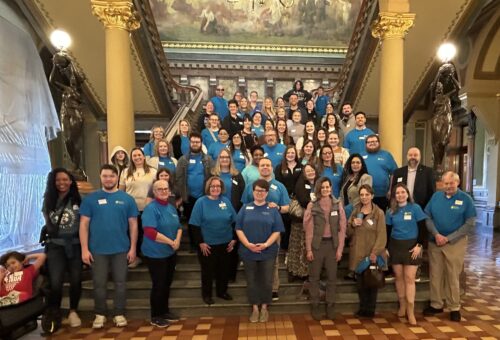
Autism Society of Iowa advocates at the Iowa State Capitol
Autism Society policy staff attended the Iowa Autism Day at the Capitol with our Iowa affiliate. This event drew in over 100 advocates to come to talk to their state legislators on important issues, such as a Medicaid buy-in program and the Autism Council.
Colorado Medicaid Unwinding Complaint
This week, NHeLP and the Colorado Center on Law and Policy (CCLP) filed a complaint with the U.S. Department of Health and Human Services Office for Civil Rights and the U.S. Department of Justice. The complaint asserts discrimination against individuals with disabilities by Colorado’s Medicaid agency, the Department of Health Care Policy and Financing (HCPF). The investigation revealed that recent modifications in HCPF‘s case management procedures and software led to inappropriate coverage terminations, service delays, and confusion among enrollees. In the complaint, CCLP and NHeLP called for immediate federal action. The complaint asks for a pause in HCPF’s case management update and to stop all Medicaid terminations for people with disabilities until issues are resolved, including ensuring timely access to case managers for enrollees.
New TA Opportunities Regarding Dire Shortage of Direct Care Professionals
The U.S. Department of Health and Human Services announced initiatives from the ACL‘s new Direct Care Workforce Strategies Center to address the shortage of support professionals for individuals with disabilities and older adults. This includes a webinar series, a hub for online resources, and two state-focused technical assistance opportunities. These efforts aim to sustain the impact of the $37 billion American Rescue Plan funding for home and community-based services. Access the press release to find out how to take advantage of these resources to build capacity in your state.
Justice Corner
Department of Justice (DOJ) Finding in Nebraska Schools
The Civil Rights Division of DOJ found the Lincoln, Nebraska public school system violated the Americans with Disabilities Act (ADA) by denying some deaf and hard of hearing students an equal opportunity to attend their neighborhood schools.
Solitary Confinement and Disability
Disability Rights Maryland, the protection and advocacy agency for the state, filed a lawsuit against the Maryland Department of Public Safety and Correctional Services for its practice of confining individuals with serious mental illness in segregated housing (aka solitary confinement) for as much as 22 hours of cell time in a 24-hour period. Individuals in this category have been detained for months and even years. Autism is generally not separately screened on prison assessment tools, and Autistic people would be subject to the ‘serious mental illness’ category. The lawsuit urges the state’s correctional facilities to require adequate mental health programming and to curb the overuse of ‘disciplinary segregation’ for mental health-related infractions.
The Autism Society of America, The Autism Society of Maryland, and the Autism Society of Baltimore-Chesapeake submitted testimony to the Maryland General Assembly in support of legislation to limit solitary confinement in state correctional facilities. The legislation requires at least 4 hours of out-of-cell time and in most cases, limits solitary confinement to 15 consecutive days. A due process hearing is also required for persons subjected to this housing practice.
Share:

